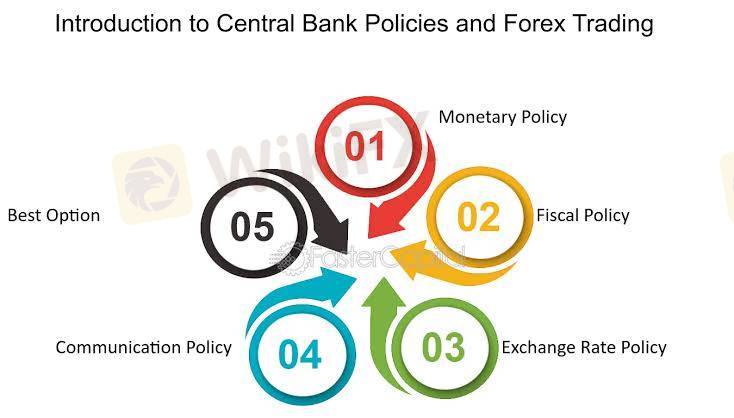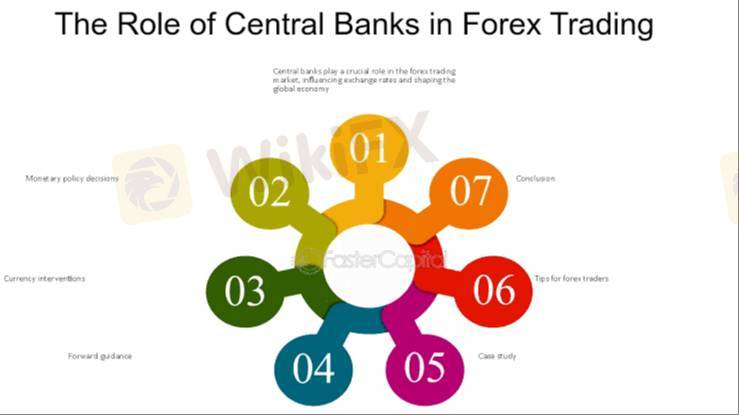
2025-02-12 11:58
IndustryCENTRAL BANK POLICIES ON FOREX TRADING
Central bank policies play a crucial role in the forex market, influencing currency value through interest rates, monetary policy decisions, and interventions. Here are some key ways central banks impact forex trading:
1. Interest Rate Decisions
Higher interest rates generally strengthen a currency as they attract foreign investment.
Lower interest rates weaken a currency as capital flows out in search of higher returns elsewhere.
Example: If the U.S. Federal Reserve raises interest rates, the USD typically strengthens.
2. Monetary Policy (Hawkish vs. Dovish)
Hawkish policies (tightening, rate hikes) strengthen a currency.
Dovish policies (easing, rate cuts, stimulus) weaken a currency.
Example: The European Central Bank (ECB) adopting a dovish stance may weaken the EUR.
3. Quantitative Easing (QE) & Tightening
QE (money printing, bond buying) increases money supply, weakening the currency.
Tightening (reducing balance sheets, selling bonds) reduces liquidity, strengthening the currency.
Example: The Bank of Japan’s prolonged QE has kept the JPY weak.
4. Foreign Exchange Interventions
Some central banks directly intervene in forex markets to stabilize or control their currency.
Example: The Swiss National Bank (SNB) has intervened to prevent excessive CHF appreciation.
5. Inflation Control & Economic Stability
Central banks aim to keep inflation stable, which influences forex traders’ confidence in a currency.
Higher inflation without central bank action can weaken a currency.
Trading Implications
Forex traders closely watch central bank meetings (e.g., FOMC, ECB, BOE) for policy changes.
Interest rate expectations drive long-term forex trends.
Sudden policy shifts can cause high volatility and price swings
#firstdealofthenewyearastylz
Like 0

Faithy2753
Broker
Hot content
Industry
Event-A comment a day,Keep rewards worthy up to$27
Industry
Nigeria Event Giveaway-Win₦5000 Mobilephone Credit
Industry
Nigeria Event Giveaway-Win ₦2500 MobilePhoneCredit
Industry
South Africa Event-Come&Win 240ZAR Phone Credit
Industry
Nigeria Event-Discuss Forex&Win2500NGN PhoneCredit
Industry
[Nigeria Event]Discuss&win 2500 Naira Phone Credit
Forum category

Platform

Exhibition

Agent

Recruitment

EA

Industry

Market

Index
CENTRAL BANK POLICIES ON FOREX TRADING
 Hong Kong | 2025-02-12 11:58
Hong Kong | 2025-02-12 11:58Central bank policies play a crucial role in the forex market, influencing currency value through interest rates, monetary policy decisions, and interventions. Here are some key ways central banks impact forex trading:
1. Interest Rate Decisions
Higher interest rates generally strengthen a currency as they attract foreign investment.
Lower interest rates weaken a currency as capital flows out in search of higher returns elsewhere.
Example: If the U.S. Federal Reserve raises interest rates, the USD typically strengthens.
2. Monetary Policy (Hawkish vs. Dovish)
Hawkish policies (tightening, rate hikes) strengthen a currency.
Dovish policies (easing, rate cuts, stimulus) weaken a currency.
Example: The European Central Bank (ECB) adopting a dovish stance may weaken the EUR.
3. Quantitative Easing (QE) & Tightening
QE (money printing, bond buying) increases money supply, weakening the currency.
Tightening (reducing balance sheets, selling bonds) reduces liquidity, strengthening the currency.
Example: The Bank of Japan’s prolonged QE has kept the JPY weak.
4. Foreign Exchange Interventions
Some central banks directly intervene in forex markets to stabilize or control their currency.
Example: The Swiss National Bank (SNB) has intervened to prevent excessive CHF appreciation.
5. Inflation Control & Economic Stability
Central banks aim to keep inflation stable, which influences forex traders’ confidence in a currency.
Higher inflation without central bank action can weaken a currency.
Trading Implications
Forex traders closely watch central bank meetings (e.g., FOMC, ECB, BOE) for policy changes.
Interest rate expectations drive long-term forex trends.
Sudden policy shifts can cause high volatility and price swings
#firstdealofthenewyearastylz
Like 0
I want to comment, too
Submit
0Comments

There is no comment yet. Make the first one.


Submit
There is no comment yet. Make the first one.